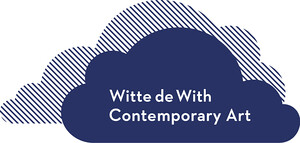Witte de Withstraat 50
3012 BR Rotterdam
The Netherlands
Hours: Wednesday–Sunday 11am–6pm,
Friday 6–9pm
T +31 10 411 0144
F +31 10 411 7924
office@kunstinstituutmelly.nl
Sunday, May 6, 2–6pm, sees the public opening of a new program of exhibitions and long-term projects at Witte de With Center for Contemporary Art, Rotterdam. This is the inaugural program of the institution’s new director, Sofía Hernández Chong Cuy. Her program also entails special initiatives, including one that consists of offering free admission to Witte de With’s most visible exhibition space, its ground-floor gallery. This gallery space will house Untitled, a long-term and slowly-evolving exhibition.
Untitled includes commissioned work to Federico Herrero from Costa Rica, and furniture by Muebles Manuel, a firm based in México and Germany. In this first iteration of Untitled, also included is a bookshop and two special displays: one about the latest project by New York artist Angie Keefer, and another an archival presentation of a 1993 project by Belgian artist Jef Geys (1934-2018) involving nine families from Alexanderpolder in Rotterdam. Untitled is set-up as a site and occasion for collective learning. Kicking-off in fall 2018 is a work-study fellowship program for Rotterdam youth which ends include collectively programming Untitled with the Witte de With team.
Hernández Chong Cuy’s exhibition program will feature the work of artists with a strong research-based practice, who are especially concerned with sensually spatializing their investigations. The programming engages artists, as well as the general public, to regard the intellectual nature of artistic production.
She has designated Witte de With’s second-floor galleries to present two solo exhibitions every exhibition season. Featured in this exhibition period is Irene Kopelman, a solo exhibition. It gathers four different projects created after this Argentinean artist, based in Amsterdam, carried out field-research between 2012 and 2016. On the same floor, A new work by Teresa Margolles, resulting from the Mexican artist’s field-work in the conflictual and unstable border region between Venezuela and Colombia.
Witte de With’s third-floor gallery will give center stage to a new group exhibition or an artist retrospective every season, featuring, this time around, An exhibition with art installations by Susana Mejía, Pamela Rosenkranz, and Anicka Yi. This exhibition invites audiences to engage with a rarely visited part of the world: the Amazon rainforest. The art installations were created after artistic and field-research, and use a range of technologies drawn from scientific, digital, and indigenous knowledges. As part of this exhibition, a series of public programs will introduce the work by other artists who have also created work in the Amazon.
Also featured in this exhibition period is Rotterdam Cultural Histories #14: May 1968, a continuation of the longstanding program collaboratively produced between TENT and Witte de With. This fourteenth edition focuses on the revolutionary times and spirit of May 1968, considered then, and still today, a turning point of our times. Documentary- and event-based, this exhibition presents an installation of Rotterdam newspapers and a series of public programs.
These exhibitions are curated by Hernández Chong Cuy with the Witte de With team: Samuel Saelemakers, curator; Rosa de Graaf, associate curator; and, Wendy van Slagmaat-Bos, production officer.
Finally, a note: at her appointment, Hernández Chong Cuy was given the task to address the name of the institution. Since her tenure began, in January 2018, she initiated research and, at this stage, considers a politics of description. This is expressed in the exhibition titles.
Founded in 1990, Witte de With Center for Contemporary Art was conceived as an art house with a mission to present and discuss the work created today by visual artists and cultural makers, from here and afar. It organizes exhibitions, commissions art, publishes, and develops educational and collaborative initiatives. This non-profit institution in Rotterdam has especially worked with artists, and engaged audiences, who are interested in posing challenging inquiries and articulations of our present. While its program considers the contemporary, it also regards how art has been created and experienced in the past, and it imagines the futures art can come to shape.



